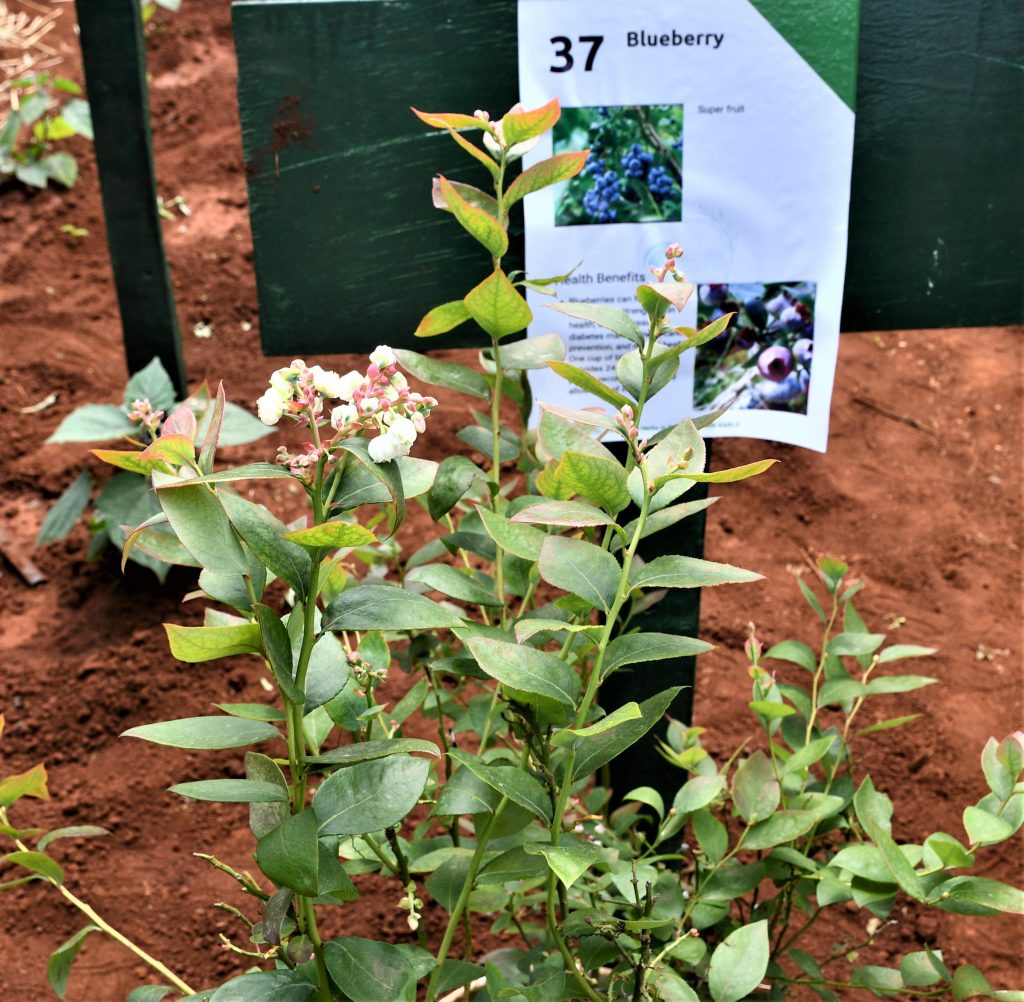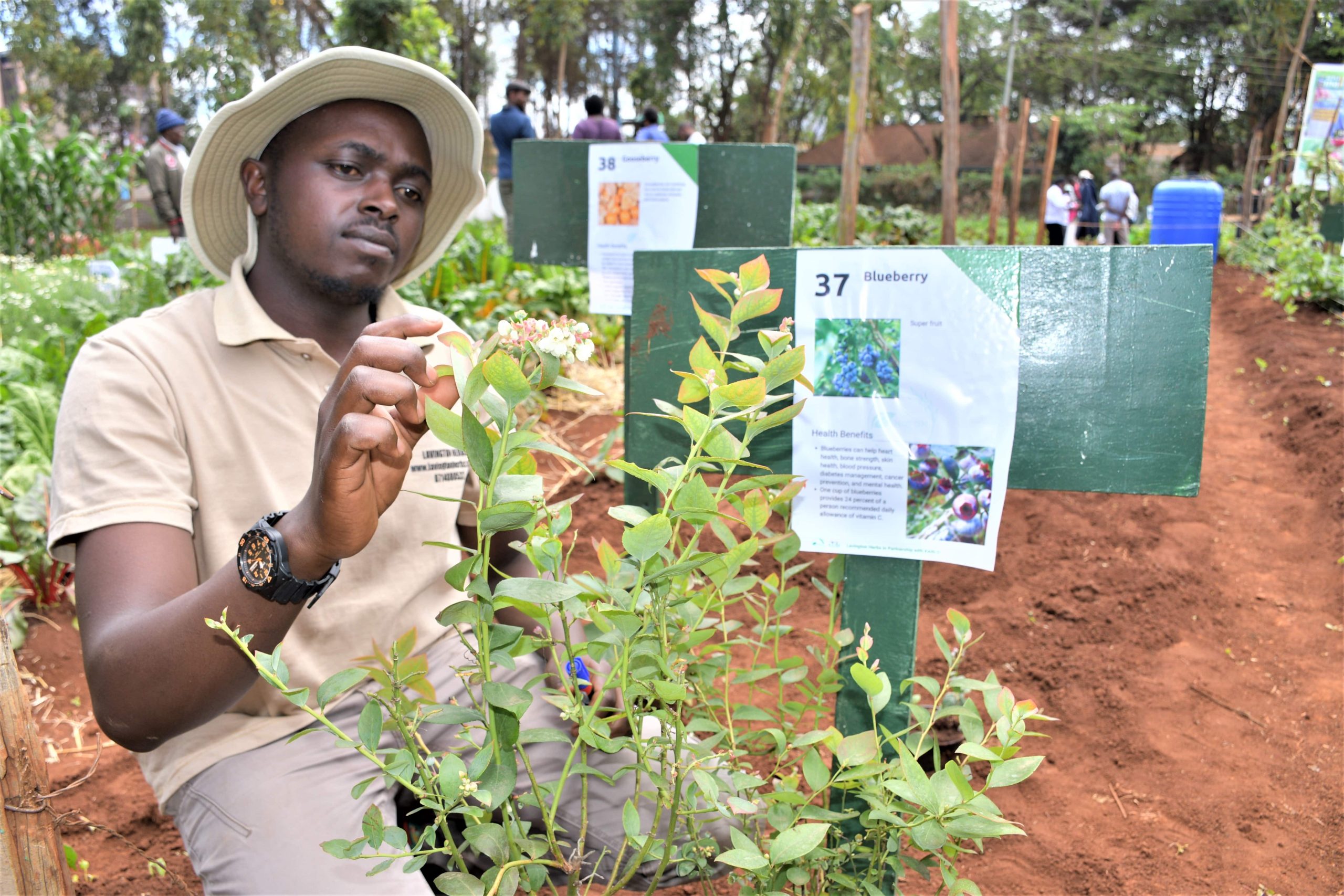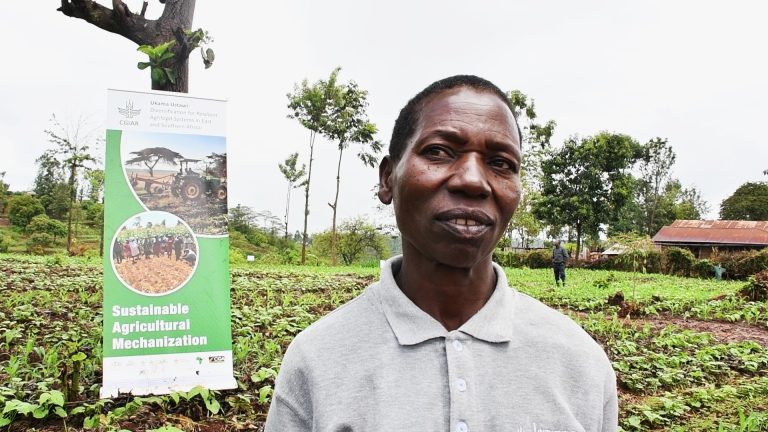By Kimuri Mwangi
Berry farming in Kenya has recently become popular with more people taking it up.
Wilson Njuguna from Lavington Herbs, a berry farmer, says there are many types of berries that people don’t know about, with the popular one being strawberry. “There are quite a variety of berries. We have blueberries, gorge berries, raspberries, blackberries and others. All these grow with minimal care and few pests and diseases so management is easy and can be done by anybody,” says Njuguna.
He adds that the popularity also stems from the fact that berries grow quickly with strawberries taking two to three months and raspberries about five months to harvest. He is based in Lavington where they have a nursery and also operate from the Nairobi International Trade Fair. He also showcases in various forums with the latest one being at the KALRO field day at Kabete.
However, some varieties are not so common, bearing in mind that most berries used to grow in the wild before people started planting them on their farms. “We have gorge berries that used to grow in Baringo and now they are extinct. If you want gorge berry fruits today you have to import,” opines Njuguna.

Gorge berry is different from the other berries as it grows into a vine like passion fruit. It is also deciduous meaning it grows seasonally shedding leaves between July and December, unlike other berries that grow throughout the season.
Blueberry is another one that has become popular. The berry farmer says that this one has some challenges as you need to grow them in acidic soils which means you have to amend the soil here in Kenya to achieve that. This means it is limited to a few farmers who know how to grow and take care of it. Njuguna however says once you know how to maintain the Ph level which is between 4 and 4.8 you can grow them comfortably. “When watering blueberries you have also to check the alkalinity and acidity of your water and this is what has proven difficult to most farmers,” adds Njuguna.
There are also newer and improved varieties of raspberries apart from those that have been there with more yields.
To anyone planning to get into berry farming, Njuguna has this to say “First you have to conduct research on the best berry that will suit your farm. You also need to learn about management which we teach to farmers. However, we don’t guarantee the market so one has to look for the market and value addition is also very helpful.”
Despite the market challenges, the berries fetch a good price with Njuguna selling a 250 kg punnet of raspberries and blackberries for Kshs. 350 while a punnet of blueberries weighing the same fetches Kshs. 600.
Dr. Lusike Wasilwa the Director of Crop Systems at Kenya Agriculture and Livestock Research Organisation (KALRO) says berries are very rich in vitamins called anthocyanins which have got anti-cancer properties. The yellow ones are also good in immune properties with the gooseberry being good for people suffering from arthritis.
“You don’t have to eat them fresh, you can make juice, you can make some wine and beer. But they are also good for making sauces, like you can add a chilli and make a chilli sauce. The beauty of the berries is the diversity of the products. You can mix them and make pastries and jams. You can dry them and add water later and drink juice,” says Dr. Wasike.
She adds that another advantage of berries is that they can fit in a small space like a fence, in a garden, in a pot like a flower and you will actually get a fruit. Some she says like the gooseberry are easy to propagate with the birds playing a great role in that.
Dr Wasike says the gooseberry has become popular and is being used to showcase berry farming first because it is a fruit for children. They are nutritious low-calorie fruits that are rich in vitamins, minerals and antioxidants.
The gooseberries have been regarded as wild fruits in most parts of the country and eventually, most people forgot about them as they grew up. They would later reappear as new expensive fruits despite doing well in the country. “The first gooseberries that came were Kshs. 400 for 18 fruits and they were coming from the Netherlands and imagine we are growing these things here. Then they went down and stabilized to around Kshs 250 to Kshs. 200 and now they have come down to around Kshs. 180. Sometimes the locally grown gooseberries are even more expensive than the ones being imported because not many people are planting them,” says Dr. Wasike.
In order to encourage more uptake of gooseberry farming in the country, Dr. Wasike says KALRO is planning to register some varieties this year and have a lot of seeds available. This is expected to increase their production hence lowering the price to around Kshs. 50 t0 Kshs. 100 per punnet.








